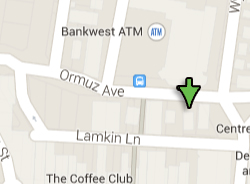MOLECARE ORMUZ AVENUE
FAQ About Skin Checks
How often should I get a skin check?
Your personal risk of developing a skin cancer depends on your age, skin type, the number and type of moles you have, the amount of cumulative UV light you have been exposed to, the amount of UV-related damage already evident in your skin (especially solar keratosis), your own past history of skin cancer and your family history of skin cancer.
For instance, a person aged 50 who has olive skin with minimal moles, who grew up in the UK and has been protective of their skin since moving to Australia at the age of 30 might only need a skin check each 5 years or if they develop a new or changing skin lesion. Whereas, a person with severe UV-related skin damage who has prolific sun spot growth or a history of frequent growth of skin cancers may need three or six monthly skin checks to manage new lesions as they develop.
Anyone with a past history of melanoma needs at least yearly skin checks because they have the highest personal risk in our population of developing another melanoma.
What happens in a skin check?
On arrival at our reception, you will be asked to complete a questionnaire to identify any skin lesions that you have noted to be changing or are of concern for you as well as outlining your past sun exposure, your past skin cancer history and your family history of skin cancer.
During the consultation your doctor will review your questionnaire answers with you. You will be invited to undress behind a privacy curtain down to your underwear. The doctor will then conduct a systematic examination your skin using a hand-held examination light and dermoscope.
We endeavour to respect your sense of decency and privacy. The skin covered by your underwear will not be examined unless you indicate that you have lesions in these areas that you would like checked.
Sun protection measures will be discussed during your consultation as needed.
What happens if I have a suspicious skin spot?
Any skin lesions that are of concern to you or your doctor will be discussed with you.
Solar keratosis (sun spot) damage can be treated during your consultation with cryotherapy (liquid nitrogen ‘freeze gun’) or prescription creams.
Your doctor may recommend taking digital photos and dermoscopy images of some of your moles so that the images can be electronically compared for change in the future.
Skin lesions that could be skin cancers will usually require skin biopsy or skin excision. If the nature of the skin lesion is not readily apparent when viewed with the dermoscope, your doctor will recommend performing a skin biopsy or skin excision so that the skin lesion can be identified more accurately by a pathology specialist.
Some skin biopsies can be performed at the time of your skin check, however some will require you to come back at another time.
What are your fees?
Bulk-billing is available for:
Children under 16 years old
Health Care Card holders
Senior Health Card holders
DVA Gold card holders
DVA White card holders (for entitled conditions )
All procedures eg. Skin biopsies and Skin Surgery
Private Fees apply for patients not covered for Bulk-billing under Medicare guidelines.
Skin Check $75
A ten dollar administration fee is added to any accounts that are not settled on the day of consultation. All fees include GST where applicable.
EFTPOS Debit Card and Credit Card facilities are available at our reception. Our Receptionist can process your Medicare Claim for you electronically at the time of payment. Your Medicare rebate will be deposited into your bank account the same day. Alternatively, you may claim your Medicare rebate by taking your Receipt/Medicare Claim form personally to the local Medicare Office which is located in the Stockland Shopping Centre (at the corner of Bowman Road and Bulcock Street) just inside the entrance from the First Avenue car park.




